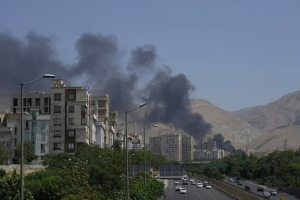In a significant diplomatic move, the United States and Qatar have announced the resumption of ceasefire negotiations for Gaza, signaling a potential breakthrough after months of stalled talks. This development comes in the wake of the recent demise of Yahya Sinwar, the former head of Hamas in Gaza, which has seemingly shifted the dynamics of the peace process.
US Secretary of State Antony Blinken, on his 11th visit to the region since the October 7th attack by Hamas, expressed optimism about exploring new avenues for peace. “We are at a pivotal moment,” Blinken stated during a joint press conference in Doha with Qatari Prime Minister Sheikh Mohammed bin Abdulrahman bin Jassim Al-Thani. The discussions aim not only at ceasing hostilities but also at addressing the broader issues of Israeli withdrawal, preventing the reconstitution of Hamas, and supporting substantial Palestinian reconstruction efforts.
The negotiations, set to continue in Doha, focus on implementing a ceasefire that could lead to the release of hostages still held in Gaza and might pave the way for a more permanent peace agreement. Blinken’s visit underscores the urgency of resolving the conflict, especially with US elections looming, influencing the international community’s focus on the region.
Qatar’s role has been pivotal, acting as a mediator between Hamas and other parties. Following Sinwar’s death, there’s been talk of Hamas potentially establishing a leadership committee in Doha, indicating a strategic shift in the group’s operational structure.
Blinken also announced an additional $135 million in aid for Palestinians, totaling US assistance to over $1.2 billion since the conflict began. This financial commitment is part of a broader plan not just for immediate relief but for long-term reconstruction and governance reforms in Gaza, which are seen as integral to lasting peace.
The diplomatic efforts are complicated by Israeli Prime Minister Netanyahu’s stance on maintaining security along the Gaza-Egypt border, which has been a point of contention in previous negotiations. However, the evolving situation, including the leadership vacuum within Hamas, might offer new opportunities for compromise.
As the world watches, these negotiations could define the future landscape of Middle Eastern politics, aiming to end a conflict that has caused immense suffering and loss. The international community, eager for peace, looks to these talks with cautious optimism.
For continuous coverage on this developing story and more, keep an eye on thetimepress.com











Add Comment